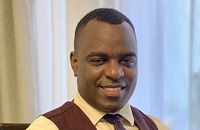
It’s important to put in place safety valves for a more nuanced, hate free debate that seeks to inform rather than vilify
COMMENT | Frank Mugisha | The media is an important aspect of our lives; especially in fully grown or nascent democracies. It’s an important channel of information through which masses are conscientised. The normative assumption is that news whether bad or good is news. But alas, as many political economists have showed, news is not neutral and as such concepts such as Free and Independent media when problematised evaporate. Ideally what would a free press entail or mean. It would mean that all voices and issues are given equal coverage. This choice lies with an editor that is presumed to make a democratic choice. This choice is supposedly free of class, gender, or religious bias etc. The choice is supposed to be secular. Experience and research negate these benevolent assertions.
Ever imagined how many school fires go unreported because they are not the coveted elite high schools or how the news would cover a mudslide in Muyenga. Insecurity in Najjera or Entebbe may make headlines but that far from the elite centers may not ever be reported not because the newsmen and women are an evil batch of deplorables but because news like margarine, cooking oil or soap is a market commodity.
The point dear reader, is that is that the newsmen and women make news of events like the boat cruise because they see the victims of the same as part of them. Second news is mostly business and business alike survive on profit. Profit therefore is the most important thing that newsrooms pursue in the neoliberal era.
Since I have established that this media is primarily driven, mostly by market forces we can then inquire into who is its target audience. Most people that relate to the plight of those in Bududa are incapable of buying a newspaper or paying television subscription. Those elites, however, sympathise with fellow elites that were victims a mudslide in Muyenga, Najjera or Ntinda. The editor, as a prudent decision-maker under pressure from the board and “naturally”, since he or she belongs to this automated class system, will choose to cover the Muyenga mudslide over the one of Bududa. Despite the higher number of victims, the ones of Bududa remain invisible to the editor’s astute eye.
It’s in this context that I analyze and critique Uganda’s media for its complacent coverage of the gay “debate.” I put debate in inverted commas because I don’t consider as debates those homophobic monologues that are wrapped as moral harangues to a nation in crisis.
A debate, in my view, is supposed to be in form of usually respectful issue-based dialogue. In most studios, a church leader is invited alongside a member of parliament and any ‘analyst’ with time on their hands. For the print the idea is usually to have a presumptuous screaming headline laden with stereotypes about the community such as “How homosexuals recruit” or “How children are recruited in gay ranks”. When pages are flipped to the actual story about eighty percent is the reporter quoting outlandish statements made by homophobes and tactically in not more than two lines cites usually a head of an LGBTQI friendly civil society organisation or sometimes does not even bother ‘wasting’ space hearing a counter argument.
Most of the Uganda public belongs to either one of the Abrahamic faiths. Faith plays a major role about which ideas are discussed in the public sphere and who gets what space. This is despite the illusion of a secular state that the constitution promises. The major backlash against queer rights in Uganda has emanated majorly from the Pentecostal evangelicals who were erstwhile minorities that have harnessed and utilised the digital revolution to their advantage.
Due to the economic woes in which the country finds itself, there’s big chunk of the public that need spiritual nourishment which Pentecostal evangelicals provide, hence attracting mammoth crowds. The Pentecostal leaders find themselves as a sort of guiding lamp for their audiences through these morally dark nights and frightful moments.
This movement seems to present a relatively unified message around the moral discourse on sexuality. As Barbra Bompani and Stepanie Terreni Brown in an article in the Journal of Eastern African studies titled A “religious revolution”? Print media, sexuality and religious discourse in Uganda” the usually divided Ugandan Pentecostal church has found a deep rooted and univocal voice in articulating the immorality of homosexuality. Pentecostal constituencies constitute a considerable numerical market that print media cannot ignore, and this is particularly true in the urban areas that absorb the majority of newspapers demand and where Pentecostals are more numerous. In this way, the media play an important role in the formation of a new political and religious identity. Pentecostals actively work towards influencing and shaping public policies, politics and public spaces. Like newspapers, they discuss and address public morality and decency in the country.
It’s impossible to find any institution or person without bias, crease, or spot. It’s my fervent prayer and wish, therefore, that the media put in place safety valves for a more nuanced, hate free debate that seeks to inform rather than vilify a community that’s already been to hell and heaven courtesy of discriminatory practices that are highly entrenched. This momentous task calls for brave, fearless and conscious reporters that have a duty to a country and not just the market or a select caste or class. For those I can say without fear of contradiction that history will be kind.
*****

Frank Mugisha is a human rights and peace advocate.
 The Independent Uganda: You get the Truth we Pay the Price
The Independent Uganda: You get the Truth we Pay the Price


